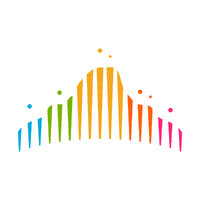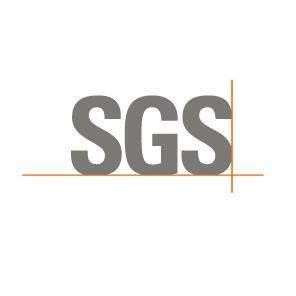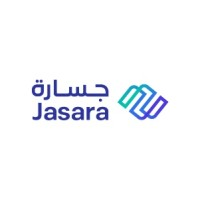The Director Smart Buildings – Office Development is a pivotal leadership role responsible for defining, developing, and executing the technological roadmap for Qiddiya City Office Development. This individual will drive innovation in the built environment, ensuring that our office developments are intelligent, sustainable, efficient, and user-centric, directly supporting business objectives and enhancing employee experience.
This role requires a unique blend of expertise in real estate, facilities management, information technology and strategic planning.
Key Responsibilities:
1. Strategic Leadership & Vision:
Develop and champion a comprehensive, long-term technology strategy for all office development, aligning with the Office BU's overall business strategy, digital transformation initiatives, and sustainability goals.
Identify emerging technologies (e.g., IoT, AI/ML for building management, digital twins, advanced AV/collaboration tools, smart sensors, predictive analytics) relevant to the future of office and workplace environments.
Translate strategic vision into actionable plans, roadmaps, and initiatives with clear objectives, KPIs, and success metrics.
Serve as a thought leader internally and externally on the intersection of real estate, office technology, workplace technology and employee experience.
2. Technology Road mapping & Implementation:
Lead the assessment, selection, and integration of innovative technologies for new office developments, renovations, and existing office upgrades.
Lead the assessment, selection, and integration of innovative technologies for QIC HQ and campus workplaces which support the future of workplace and ‘ways of working’.
Oversee the lifecycle of office technology solutions, from proof-of-concept and pilot programs to full-scale deployment and ongoing optimization.
Collaborate closely with IT, Facilities, HR, and business unit leaders to ensure seamless integration of technologies with existing systems and user workflows.
Develop and manage technology budgets, ensuring cost-effectiveness and ROI for technology investments in the built environment.
3. Partnership & Collaboration:
Foster strong relationships with internal stakeholders across the Business, including the IT team, Central Development Unit, Master Development Unit and other BU’s.
Look for partnership opportunities with external vendors, technology providers, architectural firms, and construction partners to source cutting-edge solutions and ensure successful implementation.
Establish and lead cross-functional working groups to define requirements, evaluate solutions, and manage technology projects.
4. Data & Analytics:
Define requirements for data collection and analytics within the office environment (e.g., space utilization, energy consumption, indoor air quality, employee sentiment).
Leverage data insights to inform strategic decisions, optimize space planning, enhance operational efficiency, and improve employee well-being.
Implement dashboards and reporting mechanisms to monitor technology performance and impact.
5. User Experience & Innovation:
Champion a user-centric approach to office technology, ensuring solutions enhance productivity, collaboration, comfort, and safety for all employees.
Solicit feedback from employees and business units to continuously refine and improve technology offerings in office spaces.
Drive a culture of innovation within the office development and facilities teams, encouraging experimentation and continuous learning.
6. Governance & Standards:
Develop and enforce technology standards, policies, and best practices for office environments, ensuring scalability, security, and compliance.
Establish robust governance frameworks for technology selection, deployment, and management.
Ensure adherence to relevant industry regulations and certifications (e.g., LEED, WELL, security standards).
Requirements
- Education: Bachelor's degree in Information Technology, Computer Science, Engineering, Real Estate, Facilities Management, or a related field. Master's degree (MBA, MS in Real Estate/Technology Management) preferred.
- Experience:
- Minimum of 15 years of progressive experience in technology strategy, architecture, or innovation, with a significant focus on the built environment, smart buildings / corporate real estate and workplaces.
- At least 7-10 years in a leadership or senior management role, demonstrating success in developing and executing technology roadmaps.
- Proven experience in managing complex technology projects, vendor relationships, and cross-functional teams.
- Experience with global organizations and diverse office portfolios is highly desirable.
- Technical Acumen:
- Deep understanding of smart building technologies, IoT platforms, building management systems (BMS), and integrated workplace management systems (IWMS).
- Familiarity with network infrastructure, cybersecurity principles in an IoT context, and data analytics platforms.
- Knowledge of collaboration technologies (e.g., videoconferencing, interactive displays) and digital signage solutions.
- Understanding of sustainable building technologies and energy management systems.
- Strategic & Business Skills:
- Exceptional strategic thinking, problem-solving, and analytical skills.
- Ability to translate complex technical concepts into clear business language and actionable strategies.
- Strong financial acumen with experience in budget management and ROI analysis for technology investments.
- Excellent written and verbal communication, presentation, and interpersonal skills.
- Leadership & Soft Skills:
- Demonstrated ability to influence, persuade, and build consensus across diverse stakeholder groups.
- Strong leadership presence with the ability to inspire and motivate teams.
- Highly collaborative and adept at working in a matrixed organizational structure.
- Proactive, results-oriented, and comfortable navigating ambiguity in a fast-paced environment.



